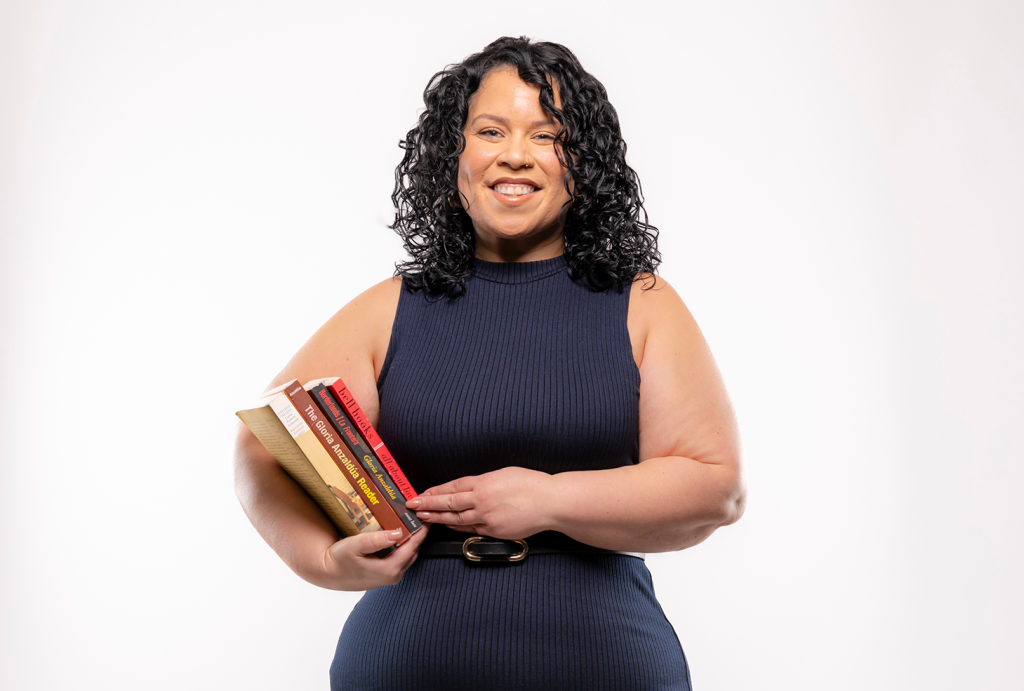The Power of Love in Learning
Reimagining education with a teaching practice rooted in compassion and justice

Dr. Jo Watts Williams Emerging Professor of Education Stephanie Hernandez Rivera
In the wake of growing social inequities, I’ve deeply reflected on how teaching grounded in love can challenge power dynamics in education and beyond. As a Puerto Rican, woman of color and educator, I see knowledge as a pathway to liberation and healing. My teaching is rooted in what bell hooks described as a “love ethic,” shaped by women of color activists, theorists and leaders like Audre Lorde, Gloria Anzaldúa, Yuri Kochiyama and the Combahee River Collective.
Lorde taught me to validate emotions as knowledge, helping students process inequity’s emotional toll. Anzaldúa emphasized critical self-reflection, inspiring me to examine positionality for collaboration. hooks’ “love ethic” guides my approach to social justice with humility, openness and accountability, ensuring collective goals never sacrifice individual humanity.
Early in my career, I worked in identity centers alongside women of color students who embodied these principles of healing and consciousness-raising. Their collaborative, love-centered approach has informed my teaching practice as I build communities rooted in mutual respect and care.
In a world where education mirrors societal power dynamics, educators must create environments where all feel respected, valued and supported.
In my classroom, I create an inclusive, collaborative environment that honors diverse perspectives and challenges traditional power dynamics. Instead of positioning myself as an authority figure, I cultivate trust and mutual learning. As hooks wrote in “Heart to Heart: Teaching with Love”: “Love will always move us away from domination in all its forms. Love will always challenge and change us. This is the heart of the matter.”
Teaching future education administrators and educators through a “love ethic” prepares them to challenge systemic inequities while fostering meaningful, human-centered connections. In a world where education mirrors societal power dynamics, educators must create environments where all feel respected, valued and supported. This approach prioritizes empathy, mutual respect and collaboration, enabling educators to honor all identities.
In my Diversity and Social Justice course, we foster collaboration by preparing food together in El Centro, a campus space celebrating Latinx/Hispanic cultures. This shared space nurtures openness and trust. We explore emotions’ influence on social justice dialogues, humanizing one another through compassion. Individual journaling also deepens self-awareness, encouraging reflection on experiences and identities.
These practices demonstrate that education can drive personal growth and social transformation. Together, we cultivate intentionality, reflexivity and relationality, empowering students to support diverse communities with love and care. I am proud to continue the legacy of women of color who used love to transform education and society.

